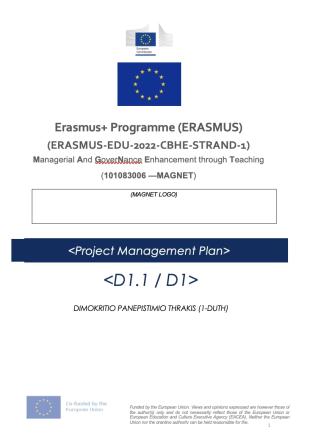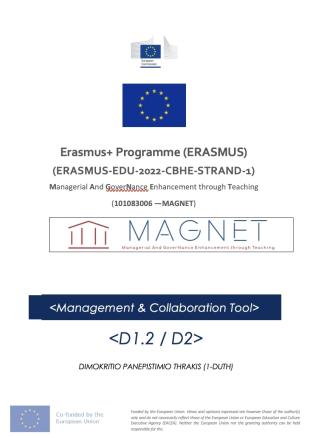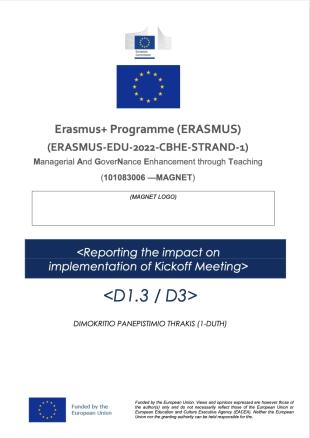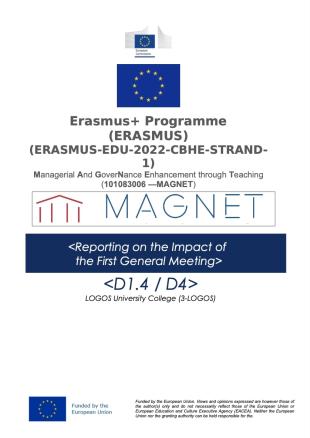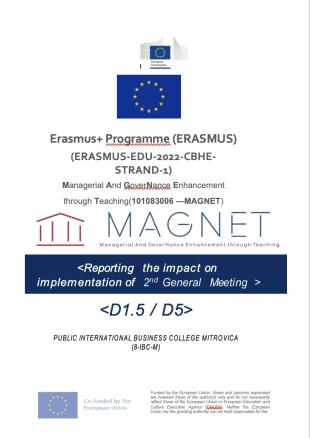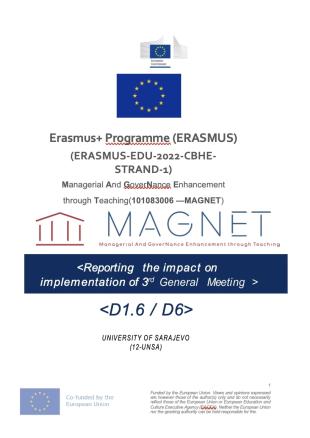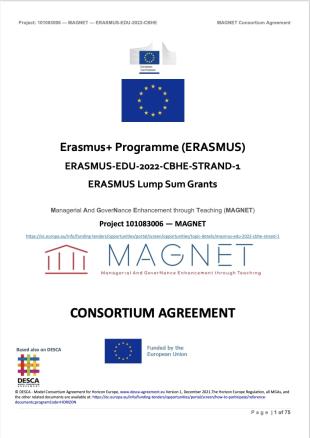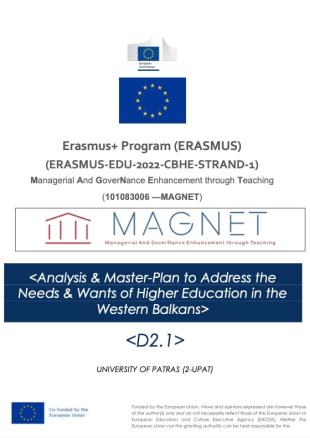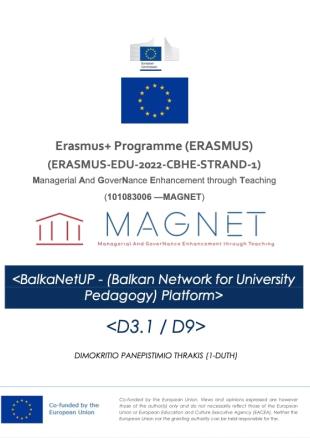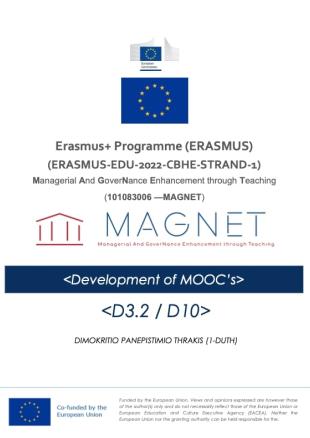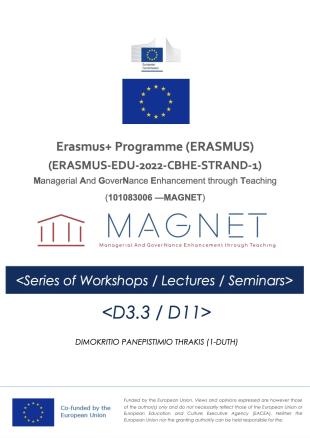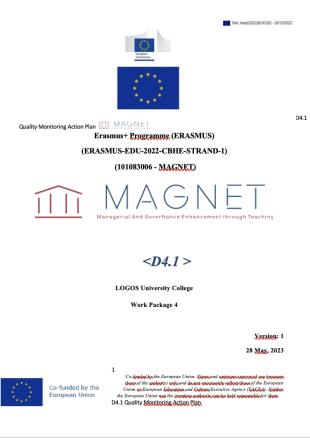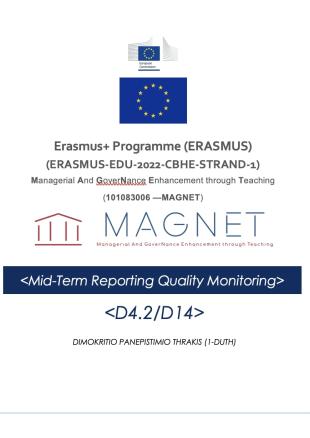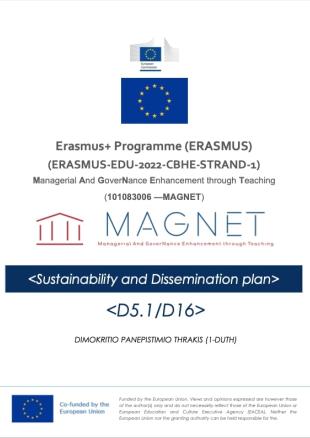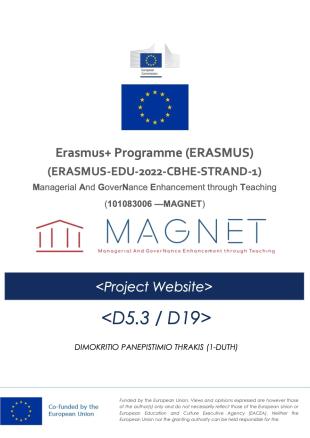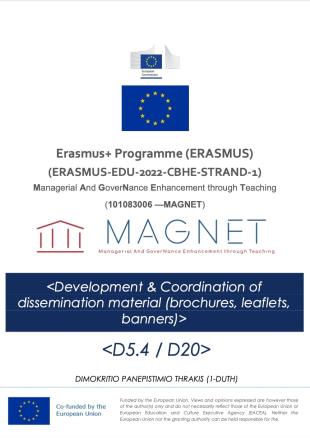Piloting & Road-Mapping the Establishment of Teaching and Learning Centers in Higher Education
Academics perceive teaching as a core aspect of their multifaceted professional duties. However, there is a recognized need to enhance teaching practices. Faculty members identify "good teaching" as being characterized by thorough preparation, extensive knowledge of the subject matter, effective communication with students, experience, ICT skills, and an inherent aptitude or "talent." Despite this, the importance of formal training and a foundational background in teaching and learning often receives less emphasis. Academics express a willingness to improve their teaching effectiveness through professional development initiatives, collaboration with colleagues, and the creation of networks to exchange ideas and best practices. Centers for Teaching and Learning (CTLs) are institutional units dedicated to enhancing teaching effectiveness, supporting faculty development, and improving student learning outcomes. They provide resources, training, and consultations aimed at fostering pedagogical excellence. CTLs function as hubs for professional learning, bringing together educators committed to continuous improvement

